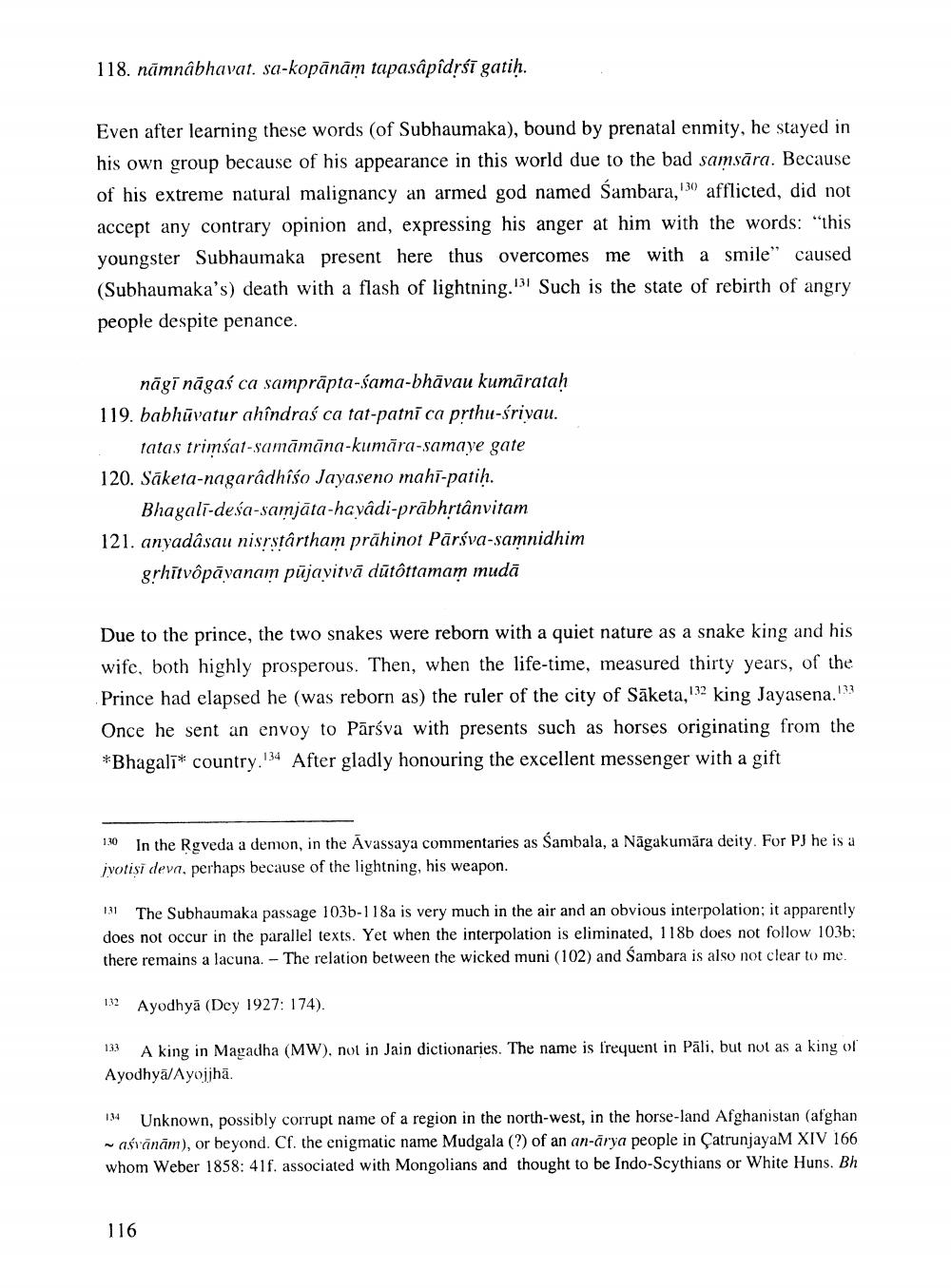________________
118. nämnâbhavat, sa-kopānām tapasâpîdrśī gatiḥ,
Even after learning these words (of Subhaumaka), bound by prenatal enmity, he stayed in his own group because of his appearance in this world due to the bad samsāra. Because of his extreme natural malignancy an armed god named Sambara, 130 afflicted, did not accept any contrary opinion and, expressing his anger at him with the words: “this youngster Subhaumaka present here thus overcomes me with a smile" caused (Subhaumaka's) death with a flash of lightning. 31 Such is the state of rebirth of angry people despite penance.
nägi nägaś ca samprāpta-sama-bhāvau kumäratah 119. babhūvatur ahîndraś ca tat-patni ca prthu-srivau.
tatas trimsat-samāmāna-kumāra-samaye gate 120. Sāketa-nagarâdhíso Jayaseno mahi-patiḥ.
Bhagali-deśa-samjāta-hayâdi-prābhrtânvitam 121. anyadâsau nisrstârtham prähinot Pārsva-samnidhim
grhītvôpāvanam pūjavitvā dūtôttamam mudā
Due to the prince, the two snakes were reborn with a quiet nature as a snake king and his wife, both highly prosperous. Then, when the life-time, measured thirty years, of the Prince had elapsed he was reborn as) the ruler of the city of Sāketa, 132 king Jayasena. 133 Once he sent an envoy to Pārsva with presents such as horses originating from the *Bhagalī* country. 134 After gladly honouring the excellent messenger with a gift
130 In the Rgveda a demon, in the Avassaya commentaries as Sambala, a Nāgakumāra deity. For PJ he is a jyotisi deva, perhaps because of the lightning, his weapon.
131 The Subhaumaka passage 103b-118a is very much in the air and an obvious interpolation; it apparently does not occur in the parallel texts. Yet when the interpolation is eliminated, 118b does not follow 103b: there remains a lacuna. - The relation between the wicked muni (102) and Sambara is also not clear to me.
132 Ayodhyā (Dey 1927: 174).
133 A king in Magadha (MW), not in Jain dictionaries. The name is frequent in Pāli, but not as a king of Ayodhyā/Ayojjhā.
134 Unknown, possibly corrupt name of a region in the north-west, in the horse-land Afghanistan (afghan
aśvänām), or beyond. Cf. the enigmatic name Mudgala (?) of an an-ārya people in ÇatrunjayaM XIV 166 whom Weber 1858: 41f. associated with Mongolians and thought to be Indo-Scythians or White Huns. Bh
116




